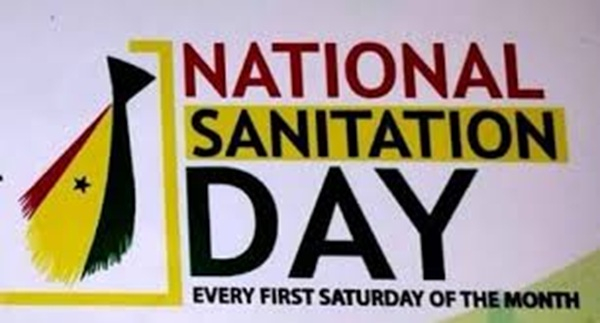On the first Saturday of every month, Ghana will soon be called to a moment of reflection and renewal, a time when citizens, bound by a common purpose, will be expected to step outside their homes, gather in their communities, and commit to one goal: to clean, to care, and to claim ownership of the spaces they live in.
The upcoming reintroduction of the National Sanitation Day (NSD) is not just an event. It marks a return to something deeper, a culture of responsibility, a way of life that once defined the very fibre of our communities. Now, under the direction of the Ministry of Local Government, Chieftaincy and Religious Affairs, the campaign is being revived, revitalized, rebranded, and reintroduced under the theme: “A Clean Environment, My Responsibility.”
This is more than a slogan. It is a civic calling.
Ghana’s towns and cities have, in recent years, struggled under the weight of growing waste, choked drains, and unsanitary open spaces. Beyond the eyesores, these conditions breed illness, increase national health expenditure, threaten tourism, and stifle local economies. But the truth is this: no government intervention, no matter how well-funded or well-meaning, can succeed without the hands and hearts of the people it serves.
That is why the reintroduction of the National Sanitation Day is not just a policy announcement; it is an invitation for every Ghanaian to rise and take responsibility for their homes, their streets, their gutters, and their neighborhoods. It is a call to rekindle the belief that sanitation is not someone else’s duty, but one’s own.
Over the years, successive governments have made efforts to institutionalize environmental sanitation as a civic priority, each contributing in various ways to deepen national awareness and improve sanitation infrastructure. The upcoming relaunch of the reintroduction of the NSD, builds on this collective foundation. It reflects a renewed commitment by the State to embed sanitation into the national conscience and ensure its continuity beyond politics and across generations.
The first nationwide clean-up under the renewed NSD will take place on Saturday, 3rd May 2025, across all sixteen regions and 261 districts. From Accra to Zebilla, communities will move as one, in schools, churches, mosques, markets, and homes to sweep, collect, weed, desilt, and dispose. But more than that, they will come together to reset a national conscience.
The Ministry’s vision is to create a movement, not just a monthly activity. This movement will be supported by mass education and media outreach, community activations, influencer-led campaigns, and nationwide visibility. It will draw on the strength of traditional leaders, the guidance of religious institutions, the energy of the youth, and the collaboration of local assemblies, civil society, and corporate Ghana.
The tone is neither forceful nor punitive. It is patriotic. The goal is not only to clean cities but to cleanse attitudes, to move from passive expectation to active participation. Because environmental sanitation is not just about what we sweep. It is about what we believe.
And what we believe is this: every citizen matters, and every action counts. When we dispose of waste properly, we protect our neighbours. When we clean our frontage, we honour our communities. When we rise early to tidy our environment, we contribute to a national legacy that transcends political lines and generational divides.
The campaign will also introduce awards and recognitions, the Cleanest District Awards among them to motivate assemblies and communities to do more. But more than medals and mentions, the real reward will be seen in the pride of clean surroundings, in the fall of sanitation-related diseases, and in the confidence of a country that values dignity and order.
So as the first Saturday of May approaches, let every broom become a tool of renewal, every dustpan a vessel of discipline, and every citizen a custodian of our shared space. Let it not be said that we waited for others. Let it be said that we stood together proudly, responsibly, and consistently to make Ghana clean.
Because in the end, Yɛn Ara Asaase Ni… this is our land. Let’s keep it clean.
(The writer is a Public Relations Officer with the Ministry of Local Government. Chieftaincy and Religious Affairs and a Staff of the Information Services Department (ISD)
darling.cann@mlgrd.gov.gh
darling.cann@isd.gov.gh)


